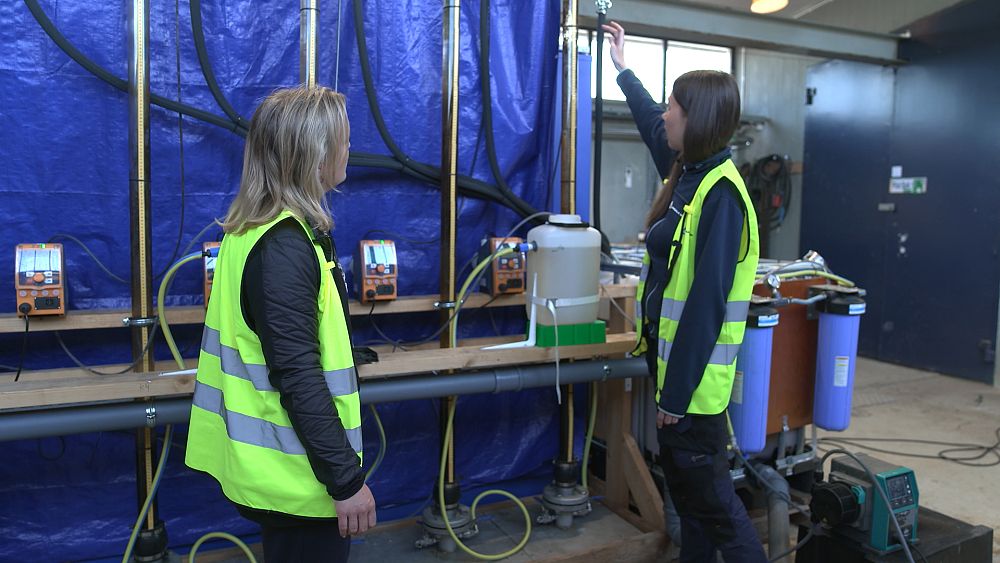The science behind waste water managementGroundbreaking trial seeks to clean our waters of medical residueIn partnership withThe European Commis...
Published on by Water Network Research, Official research team of The Water Network

Groundbreaking trial seeks to clean our waters of medical residue
In partnership with
The European Commission
Groundbreaking trial seeks to clean our waters of medical residue
By Euronews Digital • Updated: 29/06/2023 - 17:09
Among nutrients, phosphorous, organic material and other micropollutants, the wastewaters in Uppsala, Sweden, contain microscopic but resilient pharmaceutical residues. What are the most cost-effective ways to clean these residues and prevent them from further harming our environment?
An ongoing pilot trial at Uppsala's water treatment plant is assessing the best innovative techniques to remove up to 80% of pharmaceutical residues and micropollutants from wastewater. The engineer coordinating the project, Anna Maria Sundin, shares what they have learned so far.
"We started out with a pre-study, looking at the different technologies to improve the removal of pharmaceuticals and micropollutants from the wastewater. Some of them are removed already today in the treatment plant. But some are more difficult to degrade and are not removed. So we have decided that we want to install a new treatment step."
The technologies evaluated in the pre-study were activated carbon, which is an absorptive technology where the residues are attached to the carbon, and ozonation, a process where you degrade by ozonation. "But since ozonation does not degrade PFOS, a micropollutant, we decided not to continue with ozonation," says Sundin.
Attached link
https://www.euronews.com/next/2023/06/29/groundbreaking-trial-seeks-to-clean-our-waters-of-medical-residueTaxonomy
- Wastewater Phycoremediation
- Wastewater Treatment
- Biological Wastewater Treatment Market
- Wastewater Engineering
1 Comment
-
Can we give a trial with our equipment, we are treating more than 100000 TDS pharma effluent. +91 9676163719